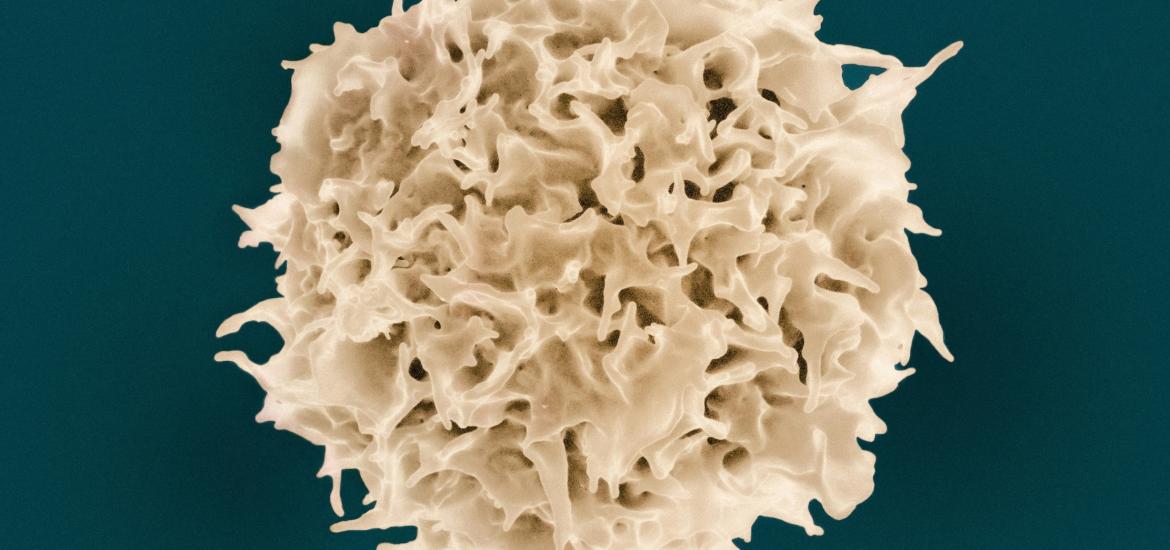
Takeda thins the cell therapy pipeline
The end of three licensed assets sees Takeda take a step back from autologous cell therapy.
The end of three licensed assets sees Takeda take a step back from autologous cell therapy.

While a rich deal with Protagonist has seen Takeda make a big bet on myeloproliferative disease, yesterday’s fiscal third-quarter update included notable project discontinuations that marked the Japanese group’s move away from autologous Car-T work.
The pipeline cull involves three clinical projects: TAK-102 and 103, derived from a 2017 collaboration with the fellow Japanese group Noile-Immune Biotech, and TAK-940, the result of a 2019 tie-up with Memorial Sloan Kettering. The result of this “portfolio prioritisation” is a greatly thinned-out cell therapy presence for Takeda, now involving a Car-NK therapy and γδ T cells.
All three now-discontinued Car-T assets used novel features. TAK-940, the subject of two phase 1 lymphoma trials, is a CD19-targeting project that used Dr Michel Sadelain’s 1XX co-stimulatory domain, described as a 1928zeta mutant containing one instead of all three immunoreceptor tyrosine-based activation motifs, to help prevent counterproductive T-cell differentiation and exhaustion.
Takeda signed that MSKCC deal in early 2019, at the same time as exercising an option over an earlier alliance with Noile-Immune that saw TAK-102 and 103 formally enter Takeda’s pipeline; at the time Takeda described the Noile-Immune collaboration as successful, and both assets began Takeda-sponsored phase 1 trials soon afterwards.
TAK-102 targets GPC3, while TAK-103 is an anti-mesothelin asset, and both additionally encode IL-7 and CCL20, features designed to provide an “armouring” effect for the Car-T cells. Both assets now appear as wholly owned Noile-Immune pipeline projects, along with that company's anti-GM2 Car-T therapy NIB101.
Takeda's cell therapy work summarised
| Project | Modality | Target | Added feature | Status | Source |
|---|---|---|---|---|---|
| TAK-007 | Allogeneic Car-NK | CD19 | Encodes IL-15 | Ph2 in NHL | 2019 MD Anderson deal |
| TAK-012/ GDX012 | Allogeneic γδ T cells | Unmodified | None | Ph1/2 in AML | 2021 GammaDelta acquisition |
| TK CAR-iPS-T | Allogeneic Car-T | Undisclosed | None | Preclinical | 2019 Kyoto University deal |
| TAK-940 | Autologous Car-T | CD19 | 1XX co-stimulatory domain* | Ph1 in lymphoma; discontinued by Takeda | 2019 MSKCC deal |
| TAK-102/ NIB102 | Autologous Car-T | GPC3 | Encodes IL-7 + CCL19 | Ph1 in solid tumours; discontinued by Takeda | 2017 Noile-Immune Biotech deal |
| TAK-103/ NIB103 | Autologous Car-T | Mesothelin | Encodes IL-7 + CCL20 | Ph1 in solid tumours; discontinued by Takeda | 2017 Noile-Immune Biotech deal |
Note: *the same domain is used in Atara’s anti-mesothelin Car-T project ATA2271, which at one point had been licensed to Bayer. Source: OncologyPipeline.
This pruning effectively leaves Takeda’s cell therapy work with just two clinical, allogeneic assets. A 2019 tie-up saw Takeda link up with MD Anderson’s Dr Katy Rezvani over IL-15-armoured Car-NK cell therapies, and one of these, the CD19-directed TAK-007, is in a phase 2 lymphoma study. Rezvani’s work separately lies behind Affimed’s lead NK cell project.
Meanwhile, in 2021 Takeda paid an undisclosed amount for GammaDelta Therapeutics, a private UK γδ T cell-focused company with which Takeda had collaborated since 2017. A phase 1/2 trial with the lead asset, GDX012, is ongoing in AML; the target company’s pipeline also included other assets, but none has progressed into the clinic.
In 2019 Takeda acquired a Car-T therapy based on induced pluripotent stem cells (IPSCs), originated at Kyoto University, and said a clinical trial was planned to start in 2021, though this never materialised.
The non-deal
If Takeda is now seen as moving away from autologous in favour of allogeneic cell therapy, then it's worth noting another allogeneic portfolio that passed the company by.
In 2018, at the time Takeda was making cautious steps in collaborations with Noile-Immune and GammaDelta, the company first made an approach to acquire Shire, which back then owned rights to Precision BioSciences’ Arcus nuclease-based allogeneic Car-T therapies (the rights came from Shire’s earlier acquisition of Baxalta).
However, by the time the Takeda acquisition of Shire closed Shire had sold its oncology business, including the Precision allogeneic Car-T work, to Servier for $2.4bn. Precision then floated and reacquired allogeneic Car-T assets from Servier for just $1.25m plus milestones and royalties, but more recently it has washed its hands of Car-T, selling its lead allogeneic Car-T asset, azer-cel, to Australia’s Imugene.
That perambulating allogeneic cell therapy portfolio has now been through at least five different owners, but Takeda hasn't been one of them.
4352













